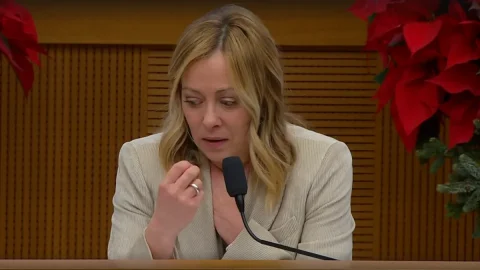The decree on cuts to the costs of politics in local authorities is the "highway to improve the relationship between elected officials and voters and stem the growing and worrying disaffection towards politics", placing a barrier "to the squandering of public money, which instead of being used to improve the res publica is too often used as a private res". With these words the premier Mario Monti yesterday evening at a press conference he presented the latest provision adopted by the Council of Ministers. A package of measures that has become urgent after the sensational Laziogate case and the opening of similar investigations into the waste of public funds also in other regions, such as Emilia Romagna and Piedmont.
Let's see what are the main measures introduced by the decree.
CUTS IN SALARIES, ANNUITIES AND FINANCING
The fees of directors and assessors are regulated so that they do not exceed the total level of remuneration recognized by the most virtuous Region (identified by the State-Regions Conference by the peremptory deadline of 30 October 2012). It is forbidden to accumulate allowances or emoluments, including allowances for functions or presidency, in commissions or collegial bodies deriving from the offices of president of the Region, president of the regional council, assessor or regional councilor.
Participation in the standing commissions, on the other hand, is free of charge. For the other collegial bodies, the attendance fee cannot exceed 30 euros.
Confirmed the elimination of annuities and the mandatory application of the contributory method for calculating the pension. In the meantime, pensions or annuities cannot be paid to those who have held the position of president of the Region, regional councilor or regional councilor only if the beneficiaries have completed 66 years of age and held the position, even if not continuously, for at least 10 years.
Funding and subsidies in favor of council groups, parties and political movements are reduced by 50% and adjusted to the level of the most virtuous Region (identified by the State-Regions Conference by 30 October 2012). Funding for groups made up of a single councilor is instead abolished.
REDUCTION OF COUNCILORS AND COUNCILORS
The decree also intervenes on the reduction of the political apparatus by applying the "anti-crisis" decree 138 of 2011. The "cut" in the number of regional councilors and councilors must be made within 6 months of the entry into force of the provision, with the exception of Regions in which an electoral round is scheduled (for which the limit will be applied after the elections). The decree also obliges the Regions to comply with the state rules regarding the reduction of consultancy and conferences, blue cars, sponsorships, compensation of the directors of investee companies.
TRANSPARENCY DUTIES
As regards the transparency obligations, the provision obliges the council groups to report and publish all the data relating to the concessions and contributions received. Public administrators (Presidents of the Regions, presidents of the regional council, regional councilors and councilors) will have to comply with the same standards of transparency introduced by the Government for their own members: publish their income and assets on the website of their administration.
MORE POWERS TO THE COURT OF AUDITORS
The control action of the Court of Auditors has been strengthened, which will have more extensive control and sanctioning powers than in the past. In particular, the Court will exercise a preventive legitimacy check on the acts of the Regions that affect public finances, including general administrative acts and those that fulfill the obligations deriving from Italy's membership of the European Union. It will also be able to evaluate, with targeted checks on the managements and, in the final moment, the equalization on the final statement of the regions, the administrative-accounting legitimacy and regularity of the managements themselves.
The Court may avail itself of the Public Finance Inspection Services of the State General Accounting Office and of the Guardia di Finanza. The Court will also have the power to supervise the accounts of the council groups and, every six months, the elaboration of guidelines on the financial coverage adopted by the regional laws.
NEW INTERNAL CONTROLS FOR LOCAL AUTHORITIES
The internal control system is implemented which certifies the effectiveness, efficiency and cost-effectiveness of the administrative action, the verification of administrative and accounting regularity, the evaluation of the results obtained with respect to the objectives and compliance with the financial balance. For entities with more than 5 inhabitants, a "strategic control" is introduced to verify the implementation status of the programmes. Instead, a "financial balance check" was introduced for all local authorities, which assesses the state of health of the entity's finances.
THE SANCTIONS
The sanctions, which will come into force from 2013, will apply to Regions that fail to comply on 30 November 2012 (or within 6 months of the entry into force of the decree if statutory amendments need to be made) and initially provide for the setting aside of the 80% of state revenue transfers (with the exception of healthcare and local public transport) and 5% of transfers for healthcare. In the event that the non-compliance persists, a warning from the Government and the subsequent procedure for the dissolution of the Council are envisaged.
PROCEDURES FOR THE FINANCIAL REBALANCING OF LOCAL AUTHORITIES
Other provisions concern the long-term financial rebalancing procedure: the Provinces and Municipalities that have budget imbalances such as to cause financial instability approve a "repayment plan" with a maximum duration of 5 years to rebalance local finances. The repayment plan of the local authority must contain a precise quantification of the factors of imbalance and identify all the measures necessary for the reduction of expenditure and the settlement of the deficit (including the freezing of debt and the reduction of personnel expenses and provision of services). The local authority has various tools at its disposal for recovery: for example, it can increase the rates and tariffs of local taxes, take on loans to cover off-balance-sheet debts.
To assist local entities that have launched a repayment plan, the State sets up a revolving fund aimed at ensuring financial stability. Through the Fund, the State advances the financial resources to the institution which, in addition to repaying it, undertakes to freeze debt and reduce personnel expenses and services.
The sanction for directors who have contributed with willful misconduct or gross negligence to the occurrence of the financial instability, in addition to the payment of a fine equal to a minimum of 5 and a maximum of 20 times the salary, is the ineligibility for ten years for the role as assessor, auditor of local bodies and representative of the local body in other bodies and institutions. For Mayors and Presidents, the ineligibility is extended to the offices of Mayor, president of the province, president of the regional council, member of municipal or provincial councils, of the Italian and European Parliament.





